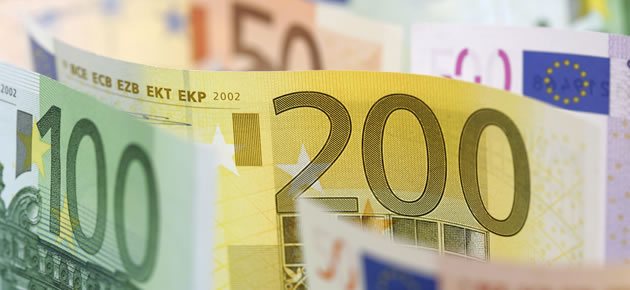A surprisingly steep slump in Eurozone retail sales left the Euro weaker against several of its major peers as European trading drew to a close on Wednesday.
The appeal of the common currency declined as sales were shown to have fallen by 1.6 per cent in December month-on-month, over twice the amount expected.
During the Australasian session the ‘Aussie’ was able to consolidate and extend gains against its European rival as upbeat domestic data justified the Reserve Bank of Australia’s decision to adopt a more hawkish rhetoric.
Local retail sales (excluding inflation) climbed by 0.9 per cent in the final three months of 2013, quarter-on-quarter, slightly less than the increase of 1.2 per cent predicted but still an impressive gain.
The third quarter retail sales figure was positively revised to an increase of 0.8 per cent.
Meanwhile, separate figures revealed an impressive increase in business confidence, with the NAB measure climbing from 5 to 8 in the three months through October.
A surprise trade surplus in December gave the Australian Dollar a final boost and helped the currency achieve a three-week high against the ‘Greenback’ and post notable gains against several of its other most-traded currency counterparts.
Thanks to a surge in exports to China Australia recorded a trade surplus of 468 million AU Dollars in December rather than the deficit of 200 million AU Dollars expected.
Before the reports were issued, currency strategists from BNP Paribas were quoted as saying; ‘A bullish catalyst for AUD has been lacking until the surprise shift from the RBA this week. The central bank’s signal that its policy easing cycle has likely ended means markets will very likely now start to price in rate hikes in Australia.’
As European trading got underway and expectations for a dovish policy statement from the European Central Bank left the Euro struggling, the EUR/AUD pairing edged lower still.
Given the mixed bag of economic data to come out of the Eurozone over the last few weeks we expect the ECB to maintain a cautious outlook and reaffirm its commitment to introducing additional stimulus methods should it prove necessary.
Therefore, we forecast that the Euro to Australian Dollar exchange rate will stay weaker after the ECB announcement.
Euro (EUR) Exchange Rates
[table width=”100%” colwidth=”50|50|50|50|50″ colalign=”left|left|left|left|left”]
Currency, ,Currency,Rate ,
Euro,
Euro,
Euro,
Euro,
Euro,
[/table]
